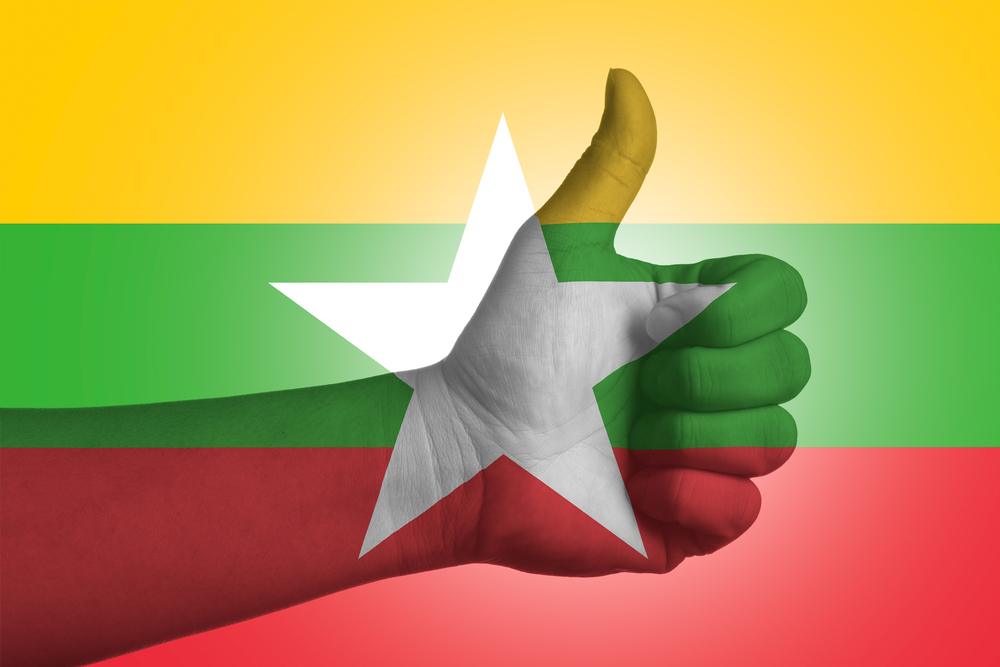Myanmar’s NLD Needs to Up its Game

Please note that we are not authorised to provide any investment advice. The content on this page is for information purposes only.
For the past five years, Myanmar’s transition has mainly been about building legitimacy. By implementing various political and economic reforms, President Thein Sein validated his government and, more importantly, the new political arrangement, created under the 2008 constitution. Now, with an overwhelming victory in the 2015 election, Aung San Suu Kyi’s National League for Democracy (NLD) has the mandate to pursue political reforms in Myanmar. However, what can it realistically achieve?
For the past five years, Myanmar’s transition has mainly been about building legitimacy. By implementing various political and economic reforms, President Thein Sein validated his government and, more importantly, the new political arrangement, created under the 2008 constitution. Now, with an overwhelming victory in the 2015 election, Aung San Suu Kyi’s National League for Democracy (NLD) has the mandate to pursue political reforms in Myanmar. However, what can it realistically achieve?
When President Thein Sein came into power in March 2011, Myanmar was in a state of despair. International sanctions were in place, the economy was in ruin and widespread, armed conflicts plagued the borderlands. Most significantly, the administration lacked electoral legitimacy.
The NLD’s decision to boycott the 2010 election meant that the international community largely regarded the election as a sham. The new quasi-civilian regime administration was seen as no different from the old one; it consisted of almost the same individuals who had just changed from military uniforms to civilian dress.
President Thein Sein tried to gain legitimacy by initiating peace talks and implementing political, economic and administrative reforms. The reforms were more about political and economic liberalisations under the limits of the 2008 Constitution rather than overarching democratic reforms. Yet they still created space for the revival of opposition political forces.
Seizing the opportunity, Aung San Suu Kyi and her NLD entered into legislative politics. Political prisoners were released. Key reforms — such as laws on labour unions, peaceful demonstration and foreign direct investment — were implemented. In addition, relative internet and press freedom was allowed.
Myanmar’s transition received international recognition. Sanctions were removed and Myanmar became the Chair of ASEAN.
This phase of Myanmar’s political transition was primarily about what could be done under the existing constitutional arrangement rather than what should be done for democratisation. As Myanmar enters into the next phase of its political transition under the NLD leadership, the focus will be tilted towards what should be done for democracy in Myanmar. This will mean testing existing political boundaries.
One obvious example of this is the NLD’s attempt to nominate Aung San Suu Kyi for the presidency. According to the constitution, Suu Kyi cannot be president because her two sons are foreign nationals. However, her party’s landslide electoral victory indicates that she is the popular choice for president. There was speculation that the NLD may try to circumvent this rule by suspending the constitution, although there are signs the military may resist this push.
While the NLD has yet to make its strategy public, its postponement of the election of the president to mid-March indicates that it is currently undertaking negotiations behind the scenes. If both sides refuse to negotiate over the possibility of a Suu Kyi presidency, it could quickly escalate into a constitutional deadlock. This issue is fundamentally a tug of war between what the NLD believes should be done and can currently be achieved.
On the other hand, the NLD has inherited a long to-do list from the previous administration. The peace process is at a crucial crossroads and the government needs a viable solution to ongoing tensions between Buddhist and Muslim groups. The controversial Myitsone dam is testing the NLD’s policy towards China. The judiciary lacks public confidence. Everyone is talking about the rule of law but no one seems to care or understand what it means. In addition, inequality is growing, fuelling public grievances. These challenges will also affect the way the NLD manages the next phase of Myanmar’s transition.
After the repudiating defeat of the pro-military Union Solidarity and Development Party (USDP) in the 2015 election, the military has become the de facto opposition party. Unlike the USDP, which had to struggle for re-election, the military not only enjoys constitutional guarantee over its role in the executive and the legislature, but also has the power to veto any constitutional amendments. The military has already indicated that it does not intend to disengage from politics unless it is satisfied that the peace process is complete. So managing the relationship with the military will be crucial for the incoming NLD government.
The NLD’s ultimate challenge is to ensure that what needs to be done to put Myanmar on a firm trajectory towards democracy can be done. This requires a careful balance between pursuing necessary reforms and accepting the existing political realities that constrain that very reform agenda. If the NLD pushes for drastic political reconfiguration without accommodating the military’s concerns and interests, it will undermine this balance and provoke a hostile reaction from the military.
However, the NLD should not forget that, given its strong electoral mandate, there are many others areas where it can work together with both the military and other political forces to enact political reforms — even within the confines of the current constitution.
If so, the NLD may be prone to criticism for not initiating a drastic reform agenda as many expected it would. However, if Myanmar’s political transition is to be durable and long lasting, it is crucial that the military supports reform. Only by keeping the military engaged in the reform process, will the military initiate gradual changes to its own role in national politics.
Managing the next phase of Myanmar’s political transition is republished with permission from East Asia Forum




